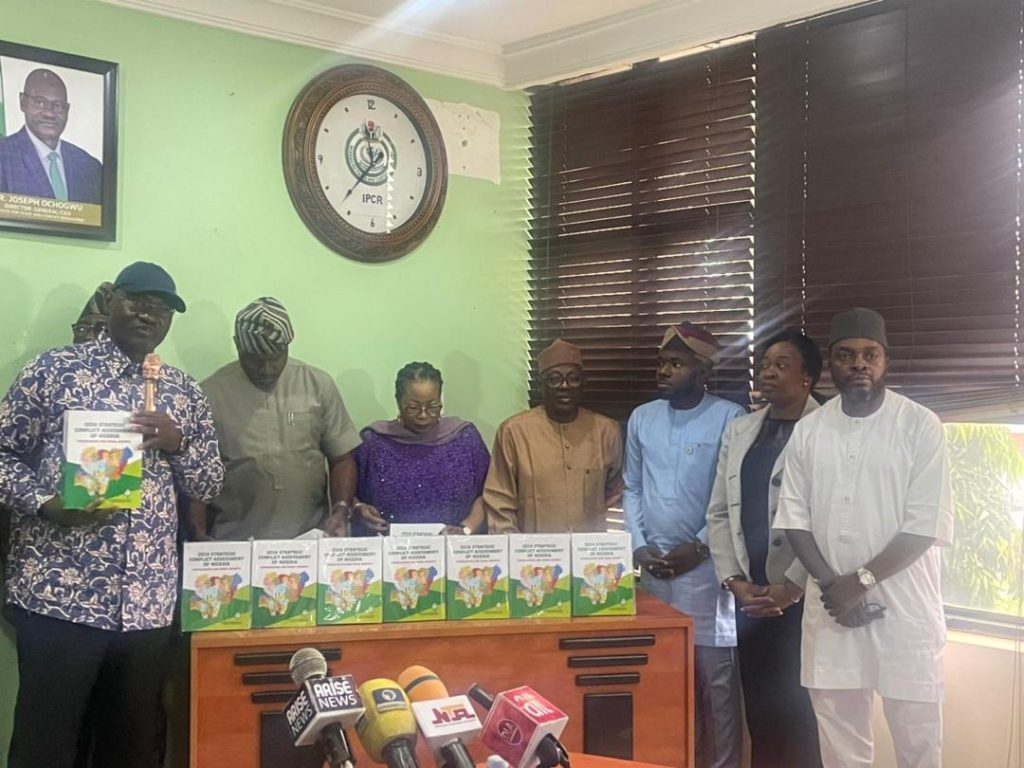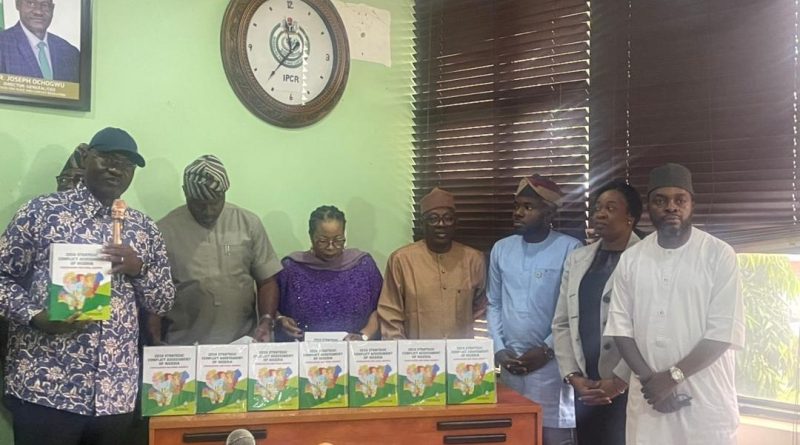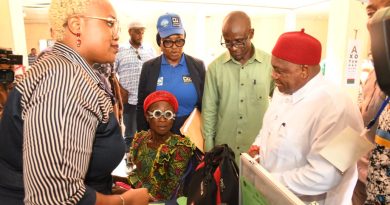IPCR Unveils Strategic Conflict Assessment Reports Of All 774 LGAs
By Bukar BOLORI
The Director-General of the Institute for Peace and Conflict Resolution (IPCR), Dr. Joseph Ochogwu, has officially unveiled the long-awaited Nigeria’s 2024 Strategic Conflict Assessment (SCA).
The report, a monumental 859-page provides an empirically grounded analysis of Nigeria’s conflict landscape across all 36 states and the Federal Capital Territory.
Speaking during the formal presentation event at the IPCR headquarters in Abuja on Thursday, Dr. Ochogwu described the report as a wholly indigenous intellectual effort, meticulously developed without external consultants or donor funding.
He noted that the last comprehensive assessment was produced over six years ago, and with this new report, the IPCR returns to one of its flagship research projects initiated in 2003.

Ochogwu said: “This document is a product of rigorous, evidence-based research carried out by our in-house experts.
“It captures conflict trends, dynamics, actors, triggers, historical context, and interventions across the federation—state by state, zone by zone, and down to the 774 local government areas.”
He emphasized that this homegrown approach affirms the Institute’s creativity, resilience, and commitment despite resource limitations.
He noted that: “What is unique about this assessment is that it reflects local realities and nuances.
“The nature of a farmer-herder crisis in one state differs markedly from that in another. Identity conflicts are also context-specific. This report helps to decode those differences.”
The DG added that the document would be particularly useful for government agencies, civil society actors, development partners, and conflict resolution practitioners, who must understand local contexts before designing and implementing interventions.
He stressed that Nigeria’s widespread conflict challenges ranging from communal violence, identity-based conflicts, farmer-herder clashes, to youth unemployment require different responses.
He said: “While some conflicts demand kinetic solutions, others necessitate addressing root causes, such as unemployment and social exclusion.“In many rural areas, there is a large population of unemployed youth who are no longer attracted to farming. This is a critical driver of insecurity.”
He revealed that the findings of the report will form the basis of a National Action Plan on Conflict Prevention and Management, to be presented to the federal government. This plan is expected to foster inter-agency synergy and guide strategic, multi-sectoral responses to Nigeria’s conflicts.
Ochogwu however appealed to government and non-government actors, security agencies, and international development partners to consult the SCA document when developing programmes and interventions.
He urged them to avoid working at cross-purposes or relying on outdated assumptions.
He said: “Too often, development programmes misalign with the realities on the ground due to poor evidence.
“This report provides a credible, data-rich foundation for making informed decisions.”
Ochogwu disclosed that a compressed version and executive summary of the report will be circulated in soft copies to tertiary institutions, research centers, and relevant stakeholders to encourage widespread use.
The DG specially commended the lead coordinator of the 2024 SCA, Dr. Bosede Awodola, and the entire study team for their “tireless efforts” from fieldwork through to analysis and reporting.
He acknowledged the demanding process and the intellectual rigor that went into delivering the report.
He recommended that: This is a must-read for all peacebuilders, policymakers, researchers, and those involved in conflict prevention, management, and resolution.
“It is a powerful tool that will help reshape our understanding and response to conflict in Nigeria.”
He thanked the media for their consistent support and urged them to help in further disseminating the findings of the report.
He added that the IPCR has again reinforced its role as Nigeria’s leading conflict research and policy advisory institution.
He also noted that the report is expected to shape dialogue, inform interventions, and provide a blueprint for peace and stability in the country.




